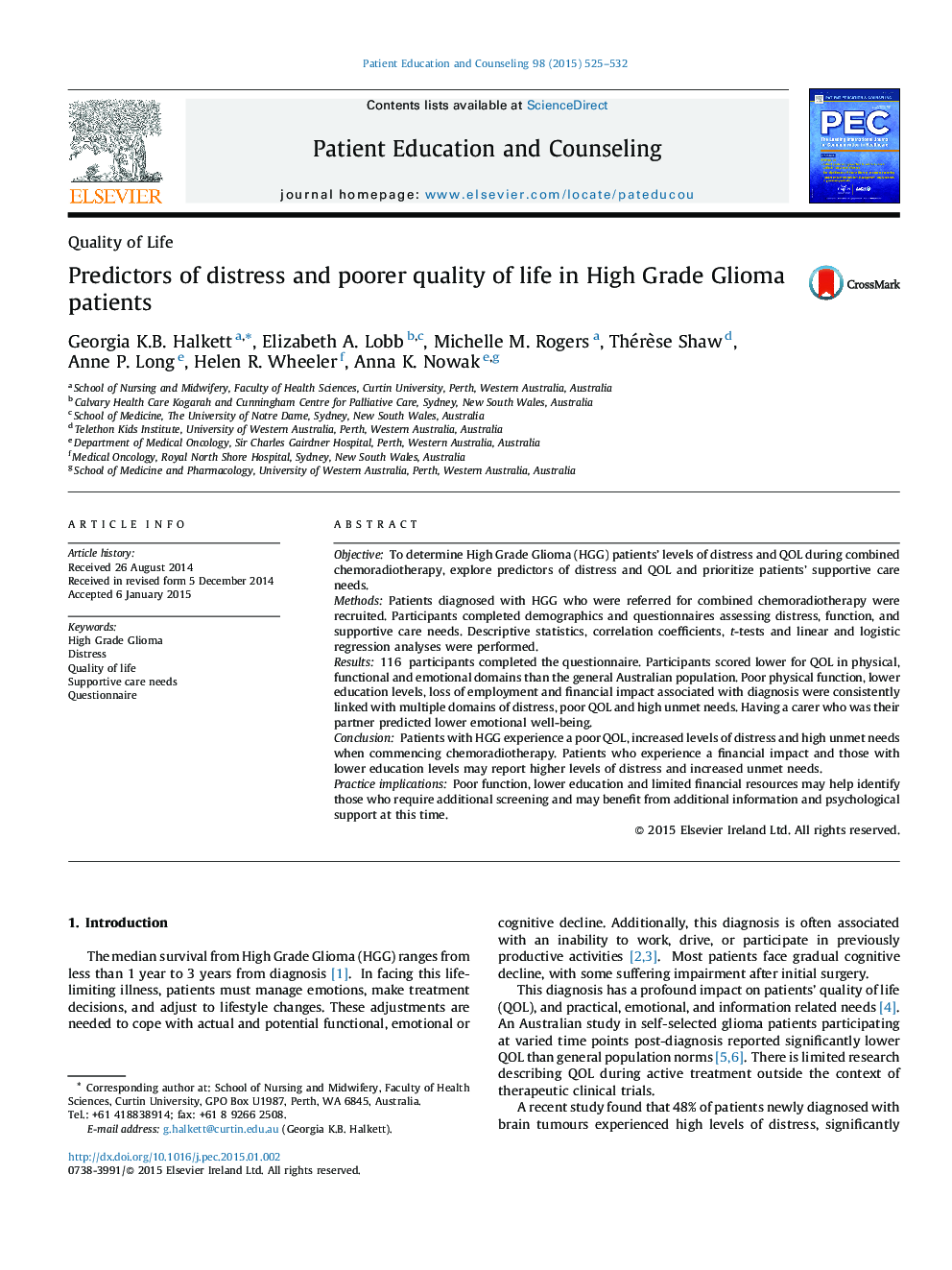| کد مقاله | کد نشریه | سال انتشار | مقاله انگلیسی | نسخه تمام متن |
|---|---|---|---|---|
| 3813718 | 1245969 | 2015 | 8 صفحه PDF | دانلود رایگان |
• HGG patients scored low for QOL in physical, functional and emotional domains.
• Lower education and employment loss were linked with distress and poor QOL.
• High unmet needs were experienced by those with lower education and employment loss.
• Having a carer who was also a partner predicted lower emotional well-being.
• The highest needs related to worrying about their loved ones and the future.
ObjectiveTo determine High Grade Glioma (HGG) patients’ levels of distress and QOL during combined chemoradiotherapy, explore predictors of distress and QOL and prioritize patients’ supportive care needs.MethodsPatients diagnosed with HGG who were referred for combined chemoradiotherapy were recruited. Participants completed demographics and questionnaires assessing distress, function, and supportive care needs. Descriptive statistics, correlation coefficients, t-tests and linear and logistic regression analyses were performed.Results116 participants completed the questionnaire. Participants scored lower for QOL in physical, functional and emotional domains than the general Australian population. Poor physical function, lower education levels, loss of employment and financial impact associated with diagnosis were consistently linked with multiple domains of distress, poor QOL and high unmet needs. Having a carer who was their partner predicted lower emotional well-being.ConclusionPatients with HGG experience a poor QOL, increased levels of distress and high unmet needs when commencing chemoradiotherapy. Patients who experience a financial impact and those with lower education levels may report higher levels of distress and increased unmet needs.Practice implicationsPoor function, lower education and limited financial resources may help identify those who require additional screening and may benefit from additional information and psychological support at this time.
Journal: Patient Education and Counseling - Volume 98, Issue 4, April 2015, Pages 525–532
